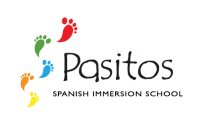Why do we let children play in the rain? ¿Por qué permitimos que los niños jueguen en la lluvia?
- Para que los niños tengan contacto con la naturaleza y todos los componentes que la rodean. Ellos pueden explorar todo lo que la compone.
- Necesitan estar al tanto del ambiente natural. Mientras más lo aprecian, más lo consideran.
- Everything is a learning experience, rain creates curiosity and a new “texture” for children to explore.
- It’s a childhood rite of passage. It’s a great sensory experience- So much is learned when you play in water.
Why do we take off our shoes inside? ¿Por qué nos quitamos los zapatos adentro?
- To reduce the amount of toxins, dirt, etc. that we carry/ bring with our shoes.
- To reduce the amount of bacteria we bring in from outside.
- Para reducir y prevenir el traer bacteria dentro del salon. De esta manera mantenemos el salon saludable.
- Evitar ingresar bacterias/ gérmenes que traemos en los zapatos, en especial en la alfombra.
Why do we not use time-outs? ¿Por qué no usamos time-outs?
- Because we practice positive discipline and time-outs are not positive discipline.
- Because we just change their environment, we don’t punish them.
- Time-outs can be negative, embarrassing, and humiliating for the child.
- Porque usamos disciplina positiva y no queremos castigar al niño, sino la accion.
- It removes the child from the situation but because it doesn’t teach the child how to behave in a positive manor.

 RSS Feed
RSS Feed